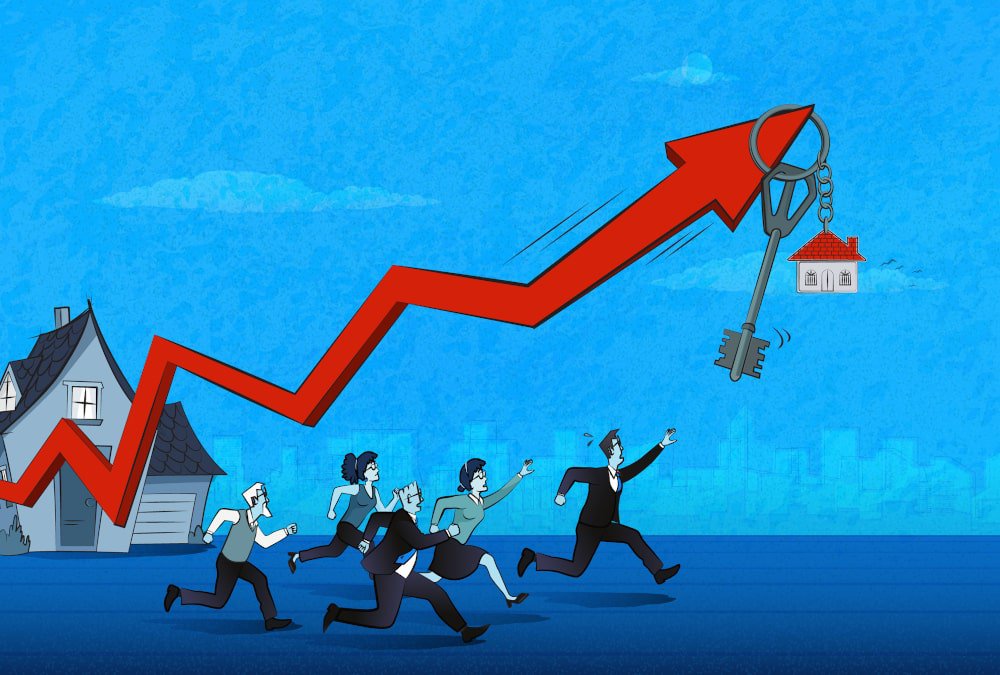2024: Increase in Sales Doesn't Cause Rise in Prices in Toronto

The Toronto Real Estate Paradox
For years, the leading narrative surrounding the Toronto real estate market is that the high prices could fundamentally be attributed to an imbalance of supply and demand. Over the past year however, we have seen both an increase in housing supply and an uptick in sales, yet home prices have barely been impacted. This leads many to wonder, when will the Toronto real estate market crash? What will it take for home prices to finally drop?
Analyzing Sales and Pricing Trends
Theoretically, an increase in housing supply should push home prices down. However, Toronto saw a total of 16,293 real estate listings in July 2024, representing an ~18% increase YOY.
Despite an ~18% increase in listings, Toronto only saw a YOY increase of 3.3% in sales this past July, with 5,391 homes being sold, as compared to 5,220 in July 2023. Average prices, on the other hand, have only dropped by 1-5% since the previous year — with some property prices dropping by less than 1% since July of last year.
In the condo world, sales and pricing trends have been even more puzzling. Since summer 2023, condo listings have increased by over 50%. Despite this promising surge in supply, rentals only increased by around 25% within the same time period, and prices have remained relatively stagnant. The Toronto condo market forecast for 2025 shows prices climbing even beyond their current levels, especially into the second half of the year. These trends indicate that Toronto’s pricing dynamic is far more complicated than a simply supply-demand imbalance.
Supply and Demand Dynamics
Since the pandemic, the rapidly rising home prices of Toronto and the GTA were largely attributed to a lack of housing supply. However, the recent increase in housing supply has failed to bring prices down. So what exactly is going on?
One big problem is a mismatch between new supply and existing demand. While housing supply has increased by almost 20% since June of last year, a large majority of that supply comes from condo listings, which are not currently in high demand. Many Canadians who have been waiting on the sidelines for the perfect time to buy a home are hesitant to choose a condo over a more stable long-term investment, such as a detached or semi-detached home. Many Canadians looking for a condo prefer to rent instead, opting to buy a larger home (with no attached condo fees) once they are more financially stable . Of course, Toronto house prices will also vary by neighbourhood, as some locations are simply more in demand than others.
Factors Contributing to Price Stability
In addition to the supply and demand dynamics described above, there is also a more complicated set of factors driving current price stability. Namely, the financial incentive for homes to keep growing in value perpetually. The way our current system is set up, most Canadians rely on their home’s value to fund their future retirement.
Given that homes are typically the largest investment the average Canadian makes in their life, and that private investors rely heavily on property appreciation to drive returns, there is incentive in both the public and private sectors to prevent prices from dropping. Earlier this year, Justin Trudeau pledged to prevent home values from dropping — to protect the “nest egg” of existing homeowners — whilst also creating new and affordable homes for young Canadians. However, the thesis of this new plan is that by creating more affordable housing supply, prices will remain low and reasonable within this segment. While this may have an impact, the events of the past year have proven that the Canadian real estate market is driven by much more than just supply and demand.
The Canadian real estate landscape is ever-changing, but with change comes opportunity. If you are looking to capitalize on the current market uncertainty and lock in a mortgage pre-approval, or begin evaluating different financing options, contact a trusted Clover Mortgage broker today — and schedule your free consultation!
FAQ
What is the sales to listing ratio in Toronto?
Currently, the sales to listing ratio in Toronto is approximately 40%.
Why are home prices rising in Toronto?
There are a number of different factors driving prices up in the Toronto real estate market. A few commonly referenced drivers include:
- A supply and demand imbalance
- Lack of new construction
- High migration rates into Toronto
- Rising construction costs
- Investor involvement in the residential market
Why are prices in Toronto so high?
Beyond the factors mentioned in the previous question, Toronto’s high prices are also driven by the urban nature of the city, the lack of available land to build new properties, the large number of job opportunities available, and the proximity to Lake Ontario. The Toronto housing market forecast for 2025 predicts a continuation of current trends, with prices expected to hit all-time highs into the latter half of next year.




